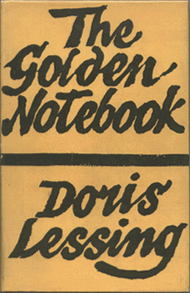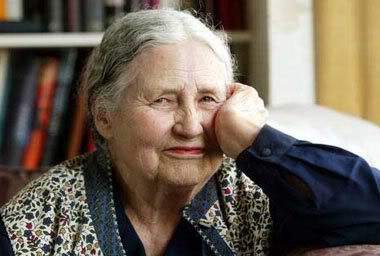Short Fuse: Finally, Doris Lessing Wins the Nobel Prize for Literature
Doris Lessing has always been massively and productively incorrect, and splendidly fulfills the mandate of a great writer by being so.
by Harvey Blume
That Doris Lessing, at the age of 88, has at last won the Nobel Prize for literature is a cause for celebration, and for allowing that some things, at least, however unexpectedly, can finally go right in this world. Why it took the Nobel Committee so long to come to a correct conclusion about her achievement is the remaining mystery. It has, to her many readers, been an open secret for decades she is simply one of the world’s most commanding writers, with a range of theme, material, style and genre no other writer in English can match.
She is a great writer about the twentieth-century allure of Marxism (one of the best on the subject, up there with Jean-Paul Sartre, Arthur Koestler, Czeslaw Milosz and Richard Wright), about aging, about women’s lives (the purportedly feminist aspect of her work), about psychological and neurological extremes, about inter-generational love, and, in the science fiction books for which the guardians of literary purity naturally condemned her, a great investigator into the impact on human culture of climate change.
Memory — how it gets represented and passed on, and by whom — is a fundamental theme for her, as is the related issue of writing. As Anna Wulf, the novelist at the center of The Golden Notebook, Lessing’s breakthrough novel, put it:
“It frightens me that when I’m writing I seem to have some awful second sight, or something like it, an intuition of some kind; a kind of intelligence is at work that is much too painful to use in ordinary life; one couldn’t live at all if one used it for living. ”
Having interviewed Doris Lessing twice, once in person, once by phone, I can tell you she is companionable, amiable and without a whiff of pretension, condescension or self-importance; in short, she’s a pleasure to talk to. Like Anna Wulf, it’s in writing that she unleashes her terrifying “second sight”. In writing she trusts it, stays with it, follows where it leads. Writing is how she extends herself into the world, probes its possibilities. You can feel this relentlessly exploratory intelligence in every form she’s used — novels, short stories and myriad, under-appreciated essays. She’s great about cats, even better about heartbreak.
Perhaps roused from bed by a Guardian reporter hoping to mix some bile into the tale of Lessing winning the Nobel Prize, a grumpy Harold Bloom attributed the decision to “pure political correctness.” In a way, by getting Lessing so perfectly and completely wrong, this verdict does us all a favor. Being politically or in any other way correct was impossible for her. She’s always been massively and productively incorrect, and splendidly fulfills the mandate of a great writer by being so. She’s exemplary in that no category can define her. Isn’t being irreducible to formula one reason we value and need great writers?



I too was delighted Lessing won the Nobel Prize, until I got a recall notice from the library for the Golden Notebook. I started it before she won, I should get to keep it.
As for Harold Bloom, maybe he didn’t mean Lessing is polically correct, but he associates her name with political correctness and that’s unfortunate. And probably sexist when it comes down to it, right?